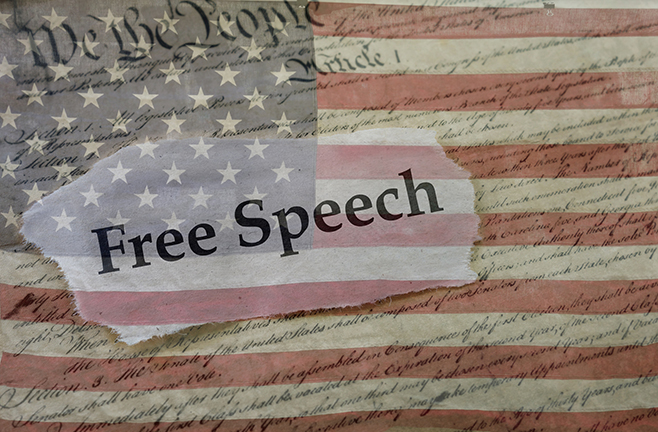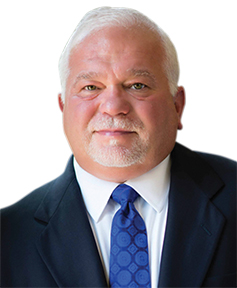Let’s get this out of the way up front: I am a big free speech guy. I mean BIG. I believe that no idea should be free from scrutiny, criticism or mockery. An unexamined thought or belief is not really worth having.
When you combine that with my slightly dark sense of humor and contrarian nature, there are times I am not always the most popular guy in the room. Throw in the fact that I am also a lawyer, and it is amazing I have any friends at all.
With all that being, said I thought I would provide a bit of a crash course on the First Amendment as it relates to freedom of speech.
A little over a month ago, Instagram blocked Robert F. Kennedy Jr., son of the late senator, from posting on the platform. The reason for the ban? He told followers not to trust “mainstream media, or government health officials” who say the coronavirus vaccine is safe.
This decision placed him in a club with former President Donald Trump, Steve Bannon and others who have been banned by various social media platforms. When this occurred, and when Trump was banned, folks started gnashing their teeth and talking about how this infringed on the individual’s free speech guarantees under the First Amendment.
They were wrong.
As background, the First Amendment to the U.S. Constitution states: “Congress shall make no law … abridging the freedom of speech, or that of the press.” As you can see, this applies to the federal government. However, through the 14th Amendment, the U.S. Supreme Court extended this First Amendment protection to prevent restrictions enacted by state and local governments.
The key takeaway from the preceding paragraph is that any abridgment of speech shall not be made by Congress or state or local governments. Focus on the word “government.”
There is nothing in the First Amendment that relates to private entities. In fact, the U.S. Supreme Court has established that under the U.S. Constitution folks like Kennedy, Trump and Bannon have no First Amendment claims to challenge the decision to block or ban their comments. Quite simply, social media companies operate as private companies — and thus, a couple of barriers exist in bringing action against them.
First, the courts have held that the First Amendment provides protection against federal and state action, not those of private companies.
Moreover, courts have also held that many of these claims are barred by Section 230 of the federal Communications Decency Act, which grants immunity to companies such as Twitter and Instagram. This includes immunity based on decisions to host or ban content.
In addition, the fact that private media companies do not fall under the “state action” necessary to trigger a First Amendment claim was affirmed by the U.S. Supreme Court in 2019.
In the opinion for this case, Justice Kavanaugh stated, “We conclude that operation of public access channels on a cable system is not a tradition, exclusive public function. Moreover, a private entity such as (the channel) who opens its property for speech by other is not transformed by that fact alone into a state actor.”
So, at the end of the day, the thing to remember is that claims of suppression of free speech really only apply when the party that is allegedly suppressing the speech is a government entity.
Regardless, I believe we should encourage the free exchange of ideas and speech. And remember, just because I do not agree with you does not mean I hate you. It just means I disagree with you.
Brad Klepper is a regular contributor to The Trucker, providing valuable information for drivers and motor carriers. He is also president of Interstate Trucker Ltd., a law firm entirely dedicated to legal defense of the nation’s commercial drivers. Brad is also president of Driver’s Legal Plan, which allows member drivers access to his firm’s services at discounted rates.











